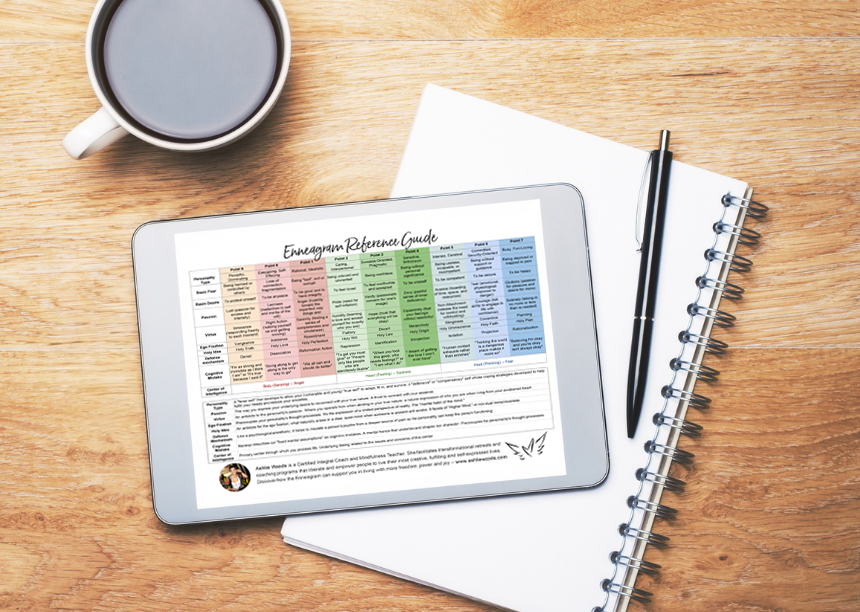Self-Preservation Two — "Me First/Privilege" (Countertype)
This "cute" Two expresses pride and a need for protection through youthful ways of gaining attention and affection. The unconscious strategy the Self-Preservation Two employs is to "seduce" like a child in the presence of grown-ups. This represents both an unconscious need to be taken care of and a sense that children are naturally loveable, inherently deserving of affection, and usually more readily liked than adults. This Two has a childlike quality in presentation and emotional expression-no matter how old they are, this Two looks youthful or young. While the Sexual Two can seem overly adult, wild, and seductive in the usual sense of the term, the Self-Preservation Two unconsciously aims to attract love and attention through being cute and expressing a childlike sense of need.
As humans, we have a natural love of children, a biological imperative that ensures that we will care for children who are dependent on us for their survival. Children want and need to be loved not for what they do for others, but for who they are. This is a basic need of any child. So what is prominent in the Self-Preservation Two is this pure, young need for love. This Two "remains little" as a way of evoking care from others without having to ask for it, just as children shouldn't have to ask for love and care or aren't mature enough to articulate this kind of request directly.
This quick reference guide captures the various aspects of each Enneagram Type including attributes, basic fears, desires, passions, virtues, fixations, defense mechanisms, and more!
Self-Preservation Twos thus unconsciously draw on the universal love of children by adopting the stance of a cute, youthful person. This presentation is a way of inviting people to like them and take care of them, just as a child's "cuteness" inspires people to love them. This is their way of expressing the idea that, deep down, they want to be loved not for being pleasing or giving to others, or because of qualifications, performance, or achievements, but just because of who they are; they want to be loved for just existing. This Self-Preservation Two pattern has this person taking the position of the child in the family because a child's needs naturally come first.
The name for the Self-Preservation Two, "Privilege," refers to the idea suggested by this personality: "I’m young, and therefore I'm the most important." This reflects this subtype's (unconscious) assertion of a kind of childlike priority, wanting others to place a special emphasis on meeting his or her needs. These Twos don't want to have to prove their importance to be important. Despite wanting to be the center of attention, they experience no accompanying feeling of having to do anything for it. They want to be seen without showing themselves.
Self-Preservation Twos need to feel unique and special-they have a compulsion about being the "cute" girl or boy who is liked by everybody. They charm or "give themselves" to others to remain the favorite. They excel at being the teacher's pet.
It's less easy to see pride in this type. The Self-Preservation Two is the countertype of the Twos; it's a Two that doesn't look like a Two. While the energetic direction of the flow of the Two personality (with its focus on seduction) is up and out toward others, the self-preservation instinct this Two has causes them to express more ambivalence about relationships. This Two moves toward others, but also has a "counter-move" away from others out of a need for self-protection. This Two is tender and sweet, but more guarded than the other Twos.
As might be expected from a more childlike character, the Self-Preservation Two is more fearful, less trusting, and more ambivalent about connections with others. Although these Twos may not be aware of how fearful they are-all Twos repress feelings-they may have a more pronounced need than other Twos to protect themselves in the presence of others, which might be perceived by some as an invisible "wall." The ambivalence about connection experienced by this type takes the form of mixed or conflicting feelings about establishing close connections with others, especially important or intimate others.
Like other Twos, Self-Preservation Twos focus on meeting others' needs as a way of gaining love, but they also feel a strong opposing pull to hide or withdraw in light of the threat of disapproval and rejection inherent in interacting with others. On the one hand, people and relationships feel compelling and important, but on the other hand, being close to people seems fraught with danger because it includes the possibilities of losing oneself or being judged, taken advantage of, humiliated, or rejected.
In this "youthful" Two, self-importance, irresponsibility, humor, playfulness, and charm are in the foreground. Until they engage in self-awareness work, this Two can be easily hurt and is hypertensive to slights or anything that might sound like criticism or disapproval. They may have tantrums or sulk or withdraw when upset. Feeling hurt can result in pouting, angry recriminations, or childish accusations. They may manipulate through an expression of feeling instead of stepping up and saying what they want or what they dislike.
Dependency is prominent in this subtype, but mostly unconscious. These Twos, like other Twos, don't want to see themselves as needy or dependent on others, and yet they can engage in a pattern of remaining unconsciously dependent, wanting someone to take care of them, or engineering situations in which people end up taking care of them. Because of this childlike stance of (unconscious) dependency, the Self-Preservation Two has less freedom; a child, after all, is rarely, if ever, completely free. So these Twos often yearn to be free while at the same time yoking themselves to people in unhealthy or unconscious ways.
Although, like other Twos, Self-Preservation Twos can be very competent, on a deeper level they don't want to have to take responsibility for themselves. The thought of taking charge of themselves fills them with anxiety. They can wonder: "What am I to do with myself?" They have an underlying desire to be a child who will be excused for their ignorance, innocence, and the feelings they might express on a whim or "just because." In more mature Self-Preservation Twos, however, their need for structure can make them more methodical and more organized than other Twos.
Self-Preservation Twos can be self-indulgent and hedonistic. They are drawn to cultivate a sense of "euphoria" through parties, shopping, drinking or indulging in food and fun-anything to distract themselves from having to contact themselves. They are sensation-seeking, and they look for pleasurable experiences to distract themselves from feelings of self-abandonment and inner deprivation.
This Two fantasizes a lot (about being loved or admired) and idealizes people, especially in the early stages of relationships. They unconsciously project their power onto others whom they see as all-good as a way of not having to be "good enough" or responsible themselves, which can make it hard for them to own their own power or have equal and truly contactful relationships.
The Self-Preservation Two can look like a Self-Preservation Six in that they are fearful and ambivalent about relationships, but in the Six the emphasis is on a more generalized fear, while this Two's fear mainly manifests in relationships. This Two can also resemble a Type Four in that they express more emotionality and a longing for love, but they repress their needs and feelings and focus on others more than Fours do.
Ben, a Self-Preservation Two, speaks:
Since I was young, I've always considered myself to be the central focus of interactions with others. Being good and cute, I expected other people to pay attention to me and felt I deserved their support. I often took recognition for granted. I avoided long-term decisions, commitments, and grown-up actions such as "settling down" or striving for healthy adult relationships. Thus, I unconsciously put off achieving independence by not truly dealing with the consequences and costs of things. Becoming an adult in an adult's world, facing life's challenges, taking full responsibility for myself on my own, and even having a more mature look appropriate to my age felt extremely difficult. For many years, the thought of doing all these things made me feel as if I would lose my biggest advantages in life: my charm and youthful likability.
Specific Work For The Self-Preservation Two on the Path from Vice to Virtue
Self-Preservation Twos can travel the path from pride to humility by making dependency needs more conscious, observing and working with fear and ambivalence in relationships, and noting how pride and mistrust keep defenses up and prevent real engagement and intimacy. Most of all, learning to be more resilient in the face of emotional hurts, as well as gently encouraging themselves to grow up and own their power, helps these Twos. Playing small doesn't work in adulthood, and you have just as much ability as anyone else to take charge of your life and be your own authority. Work to receive from others from a position of strength and competence as opposed to a pose of self-inflation or underlying need. Recognize that by holding on to your own value you invite others to give to you freely, based on an appreciation of your true worth, without manipulation or unconscious dependence. Remember: when you can support yourself from the inside rather than relying on others, you have the ability to both receive love from others and weather the occasional pain of rejection.
Sourced with permission from The Complete Enneagram by Beatrice Chestnut.
Type 1 Type 2 Type 3 Type 4 Type 5 Type 6 Type 7 Type 8 Type 9
Ashlie Woods
Director of Business Division & Lead Coach at Sourced
Ashlie is a transformational coach, retreat leader, dance lover and Enneagram enthusiast. She is passionate about facilitating experiences that liberate and empower people to live their fullest, more creative and self-expressed lives. She believes there is a life that wants to be lived through you and a purpose only you can fulfill.
She spent 6 years designing and delivering corporate training programs focused on leadership development and company culture before making the bold leap to start her own retreat-based business.
Ashlie now supports heart-centered business owners (coaches, consultants, creatives, healers) to market, sell and deliver their transformational work in the world using their unique magical gifts.




